Introduction
A nutritious diet is the cornerstone of a healthy lifestyle. It provides the essential nutrients needed for proper bodily functions and helps prevent various health issues.
One key component of a nutritious diet is dietary fiber, which plays a crucial role in supporting digestive health, managing weight, and reducing the risk of chronic diseases.
In this article, we will explore the world of fiber-rich Nigerian foods that can contribute to a healthier you.
Understanding the Importance of Fiber in a Nutritious Diet
Fiber, often overlooked but highly impactful, is a type of carbohydrate found in plant-based foods. Unlike other carbohydrates, fiber cannot be broken down into sugar molecules for energy. Instead, it passes through the digestive system relatively intact. This unique characteristic of fiber brings a multitude of benefits to the body.
One of the primary benefits of fiber is its ability to promote healthy digestion. It adds bulk to the stool, making it easier to pass through the digestive tract and preventing constipation.
Additionally, fiber acts as a prebiotic, serving as food for beneficial gut bacteria and promoting a healthy gut microbiome.
Fiber also plays a role in weight management. High-fiber foods tend to be more filling, which can help control appetite and prevent overeating.
Moreover, fiber slows down the digestion and absorption of glucose, helping to stabilize blood sugar levels and reduce the risk of diabetes.
Furthermore, a diet rich in fiber has been associated with a reduced risk of heart disease, certain types of cancer, and other chronic conditions.
This is due to fiber’s ability to lower cholesterol levels, regulate blood pressure, and support overall cardiovascular health.
Soluble Fiber vs Insoluble Fiber: What’s the Difference?
Fiber can be classified into two main types: soluble fiber and insoluble fiber. While both types are important for a healthy diet, they perform different functions in the body.
Soluble fiber dissolves in water, forming a gel-like substance. This type of fiber can help lower cholesterol levels, regulate blood sugar levels, and promote a feeling of fullness. Good sources of soluble fiber include oats, barley, psyllium husk, fruits, and vegetables.
Insoluble fiber, on the other hand, does not dissolve in water. It adds bulk to the stool and helps promote regular bowel movements. Insoluble fiber is found in foods such as whole grains, nuts, seeds, and the skins of fruits and vegetables.
Both soluble and insoluble fiber are essential for a well-rounded and fiber-rich diet. By incorporating a variety of high-fiber foods into your meals, you can reap the benefits of both types of fiber.
Nigerian Staples High in Fiber
Nigeria is known for its rich culinary heritage, and many traditional Nigerian foods are naturally high in fiber. Let’s explore some of the staple Nigerian foods that can contribute to a fiber-rich diet.
Beans
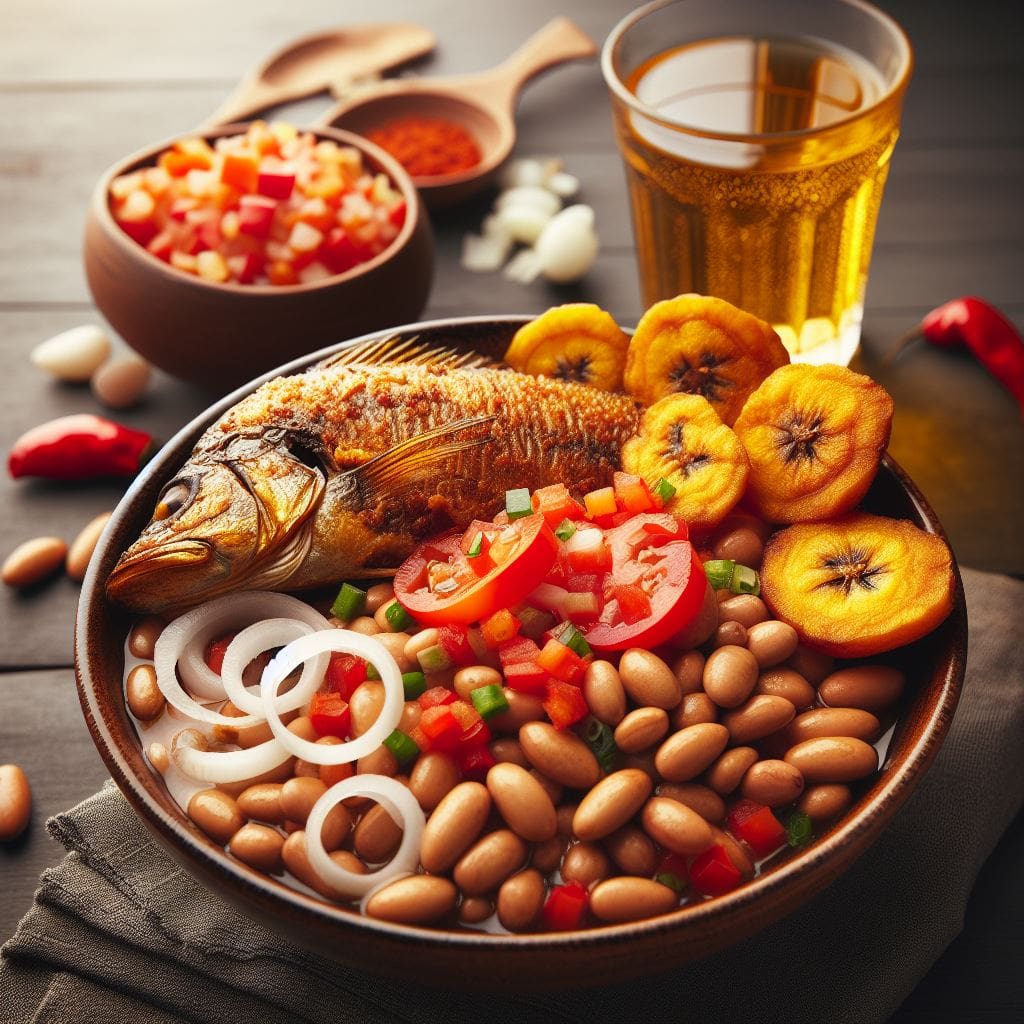
Beans are a firm staple in the average Nigerian household. They are versatile and can be boiled, made into porridge, or used to prepare dishes like Moi-Moi and Akara. Beans are an excellent source of dietary fiber and provide a good amount of protein. They are also low in cholesterol and can be a healthy addition to any meal.
Cocoyam (Taro)
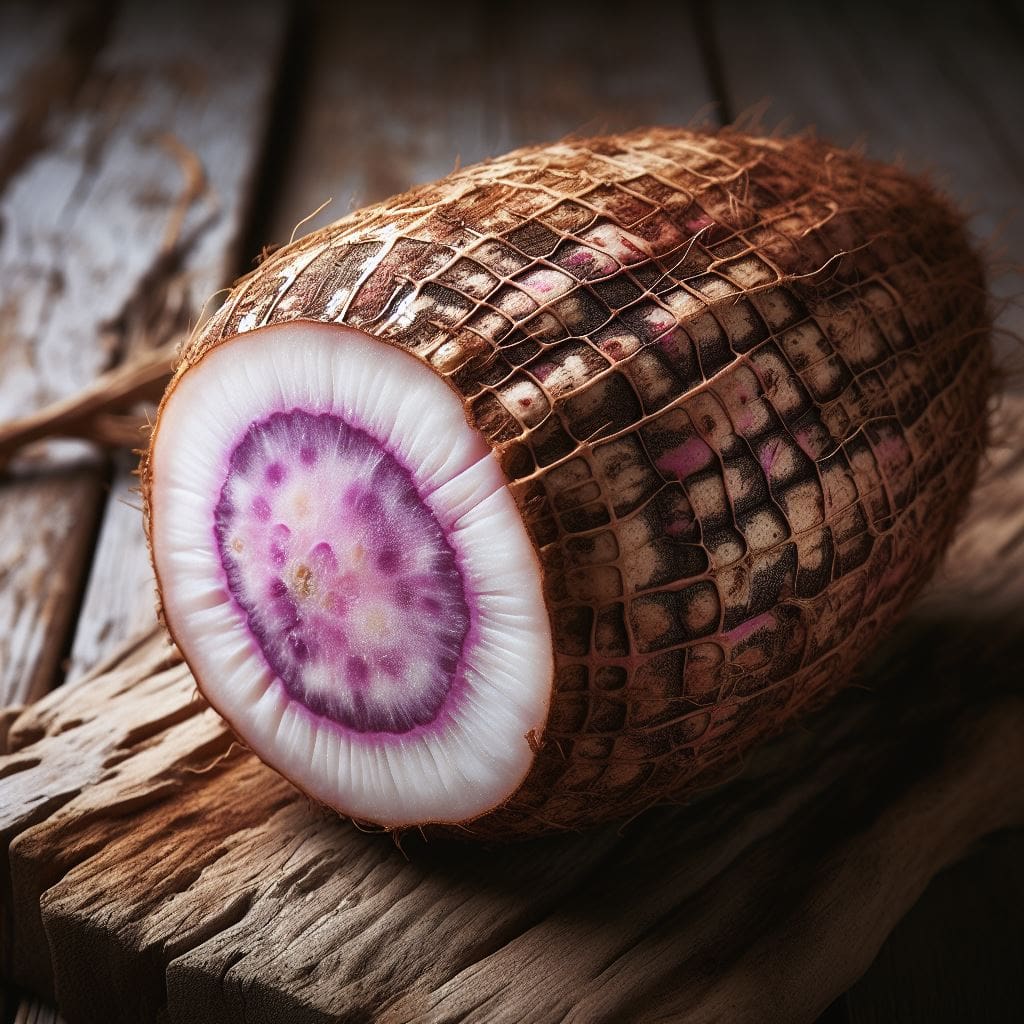
Cocoyam, also known as taro, is a root vegetable that is high in fiber, vitamins, and minerals. It can be roasted, boiled, or used as a thickener in various soups.
Cocoyam leaves, which are equally high in fiber and vitamins, are used in dishes like Ekpang Nkukwo. This traditional Nigerian dish is not only delicious but also packed with nutrients.
Corn (Maize)
Corn is a versatile staple in Nigeria and can be roasted or boiled. The fiber content of corn varies depending on the variety. Popped corn is particularly high in fiber, while processed forms like pap (akamu) have lower fiber content. Including corn in your diet can contribute to a fiber-rich eating plan.
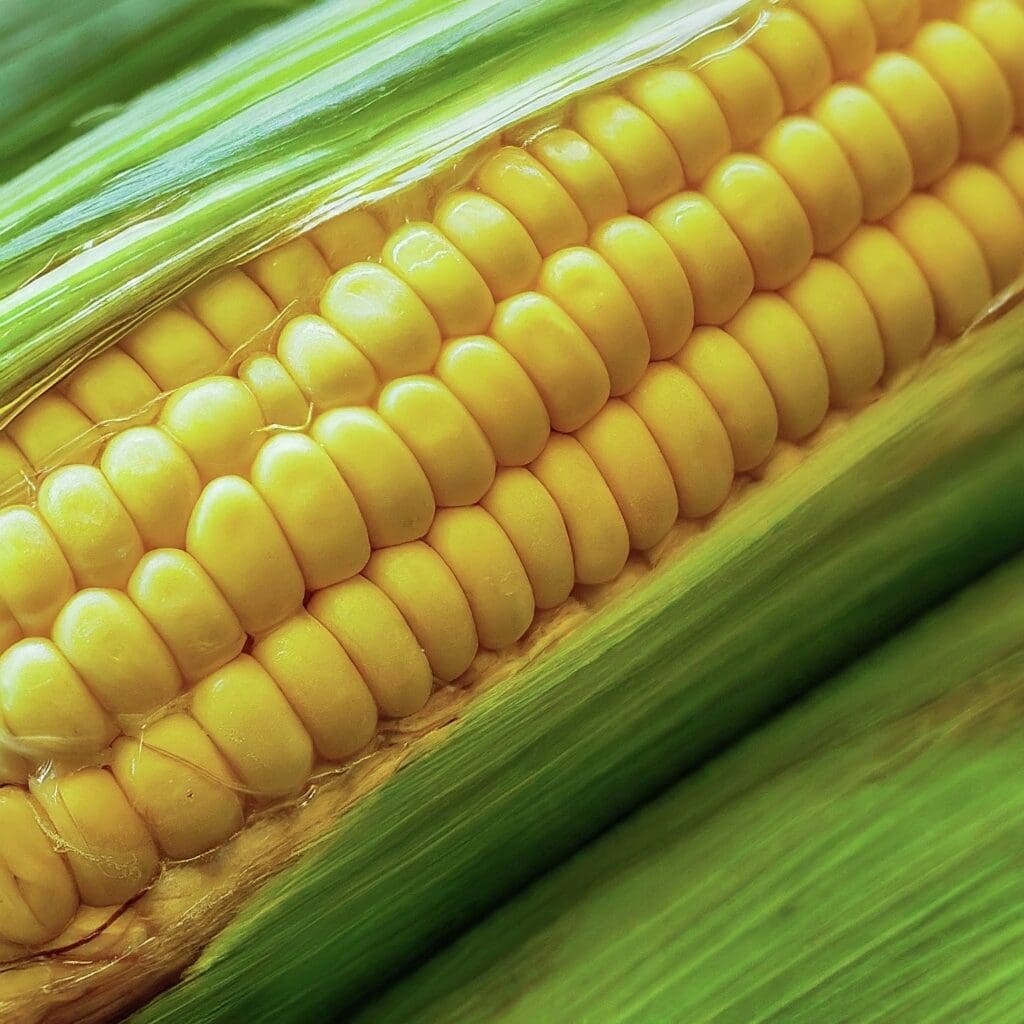
Oats
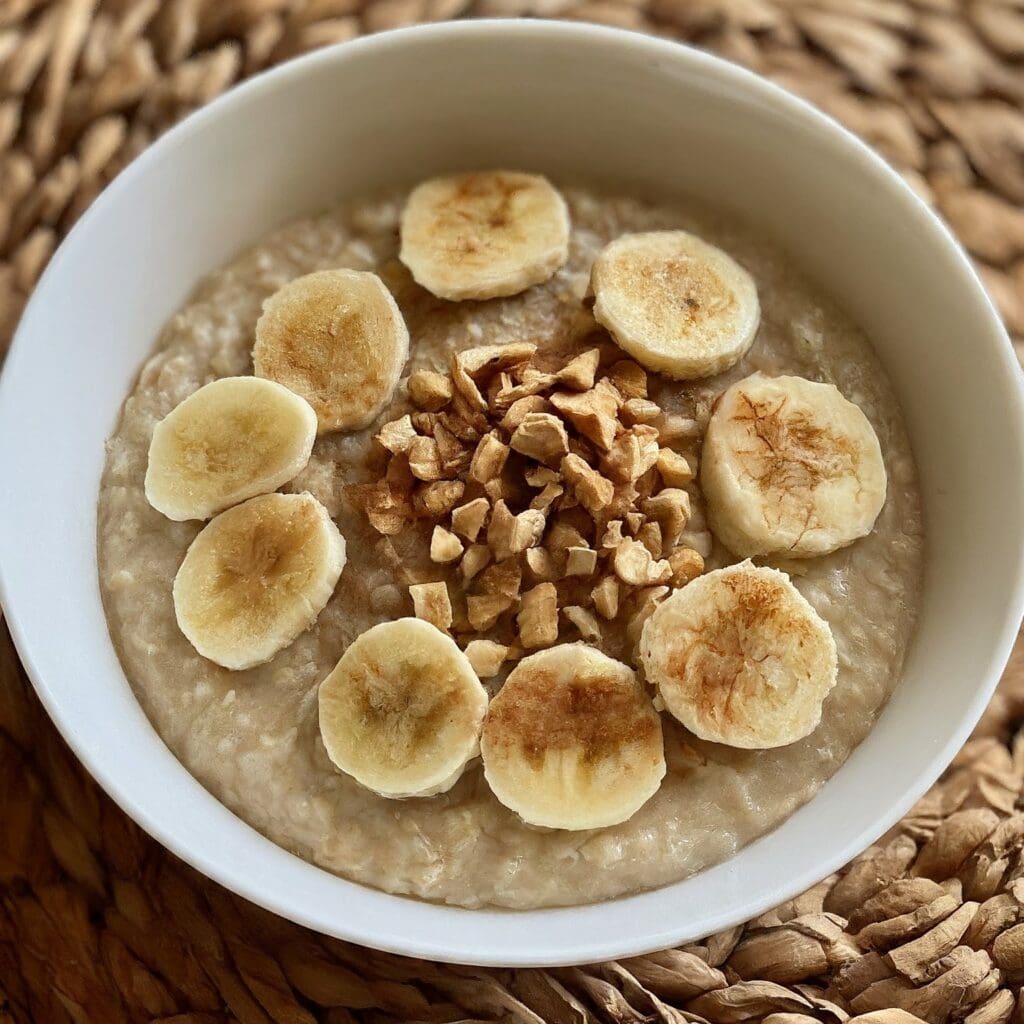
Although not traditionally associated with Nigerian cuisine, oats are an excellent source of soluble fiber. They can be made into a comforting swallow, used as thickeners for soups, or enjoyed as a nutritious breakfast option. Oats provide a good amount of fiber and can help keep you feeling full and satisfied.
Yam
Yam holds a special place in Nigerian culture and is often used in ceremonies and festivals. It can be boiled, roasted, fried, or pounded. While yam is calorie-dense, it also contains a good amount of fiber. Including yam in your diet can provide a nutritious and fiber-rich carbohydrate source.
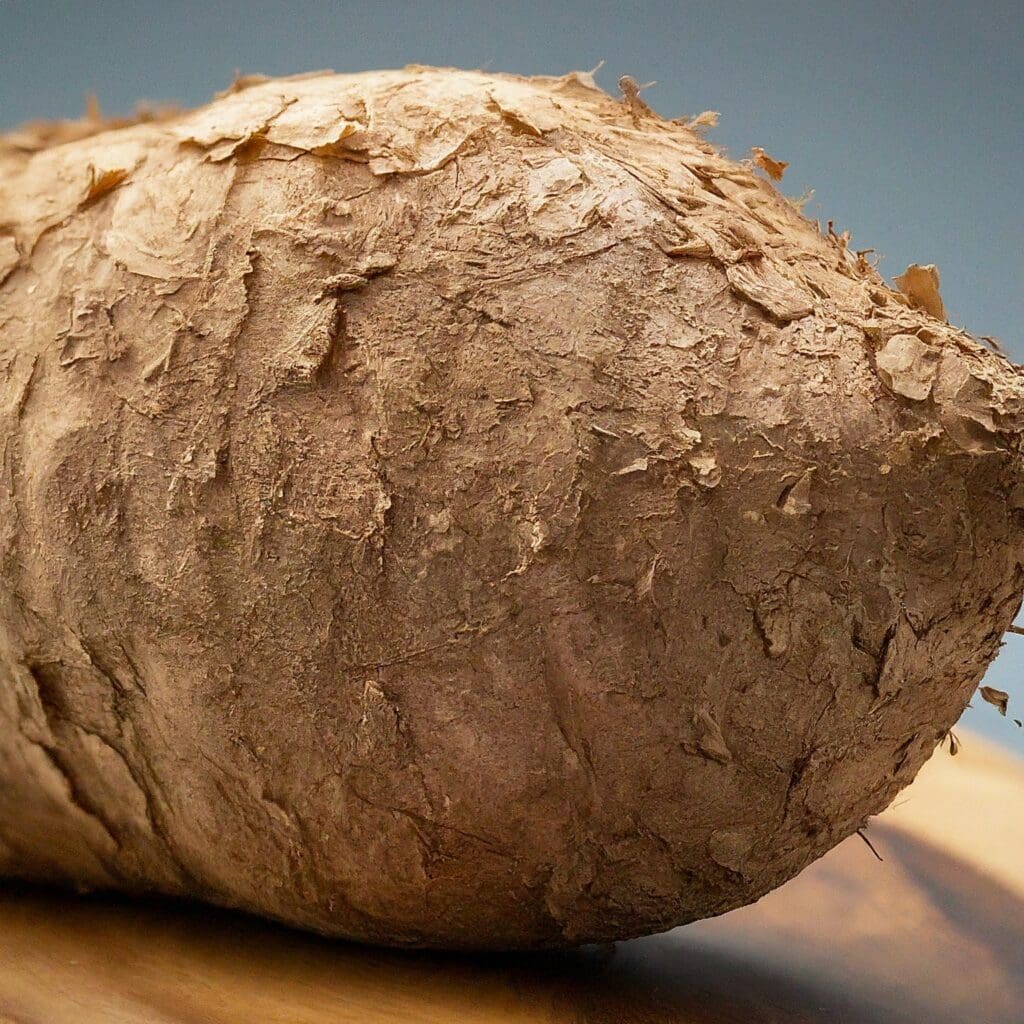
Cassava
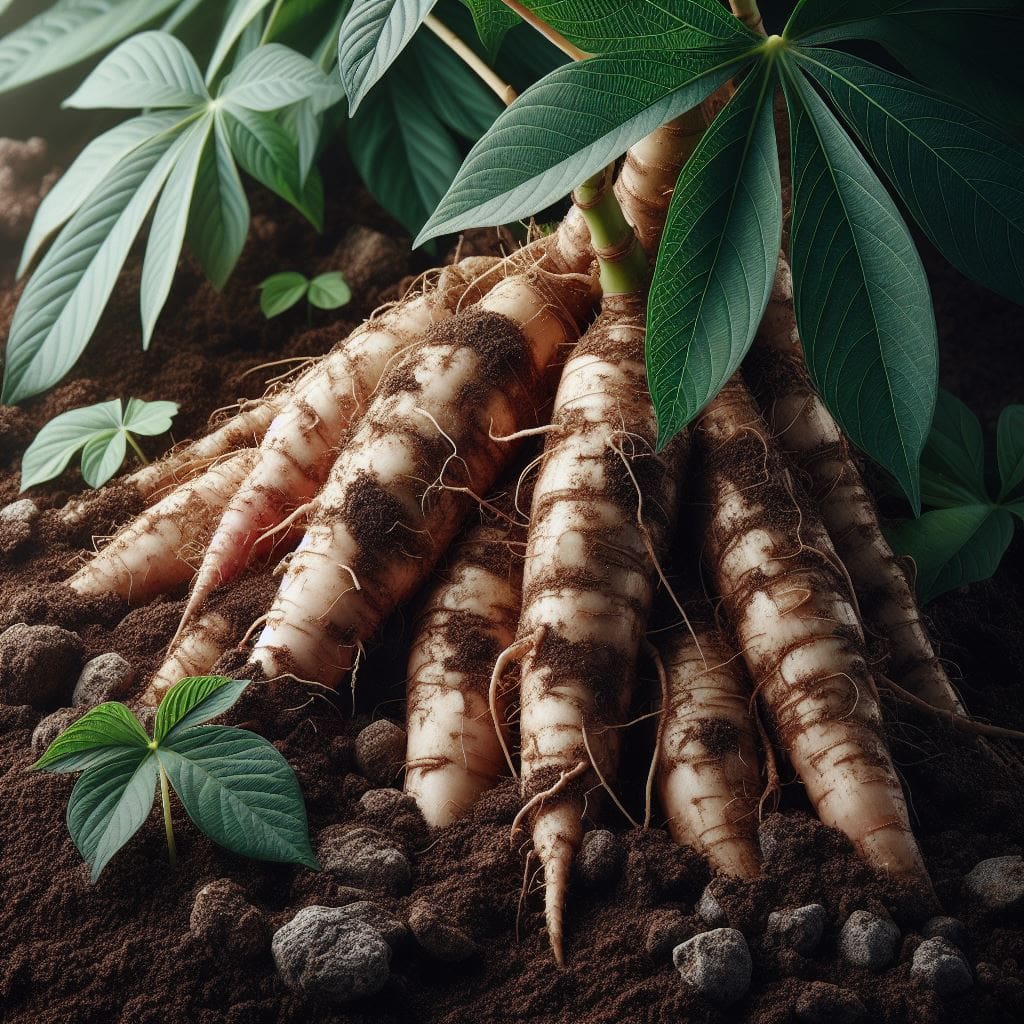
Cassava is a widely cultivated root vegetable in Nigeria and is often processed into products like garri and fufu. While cassava is not as high in fiber as other foods on this list, it is still a part of Nigerian cuisine and can be consumed as part of a balanced diet. Pairing cassava with fiber-rich vegetables and proteins can help create a more nutritious meal.
Rice
Rice is a staple in Nigerian cuisine, and dishes like jollof rice and fried rice are beloved by many. However, it’s important to note that white polished rice, which is commonly used, has a lower fiber content compared to other types of rice.
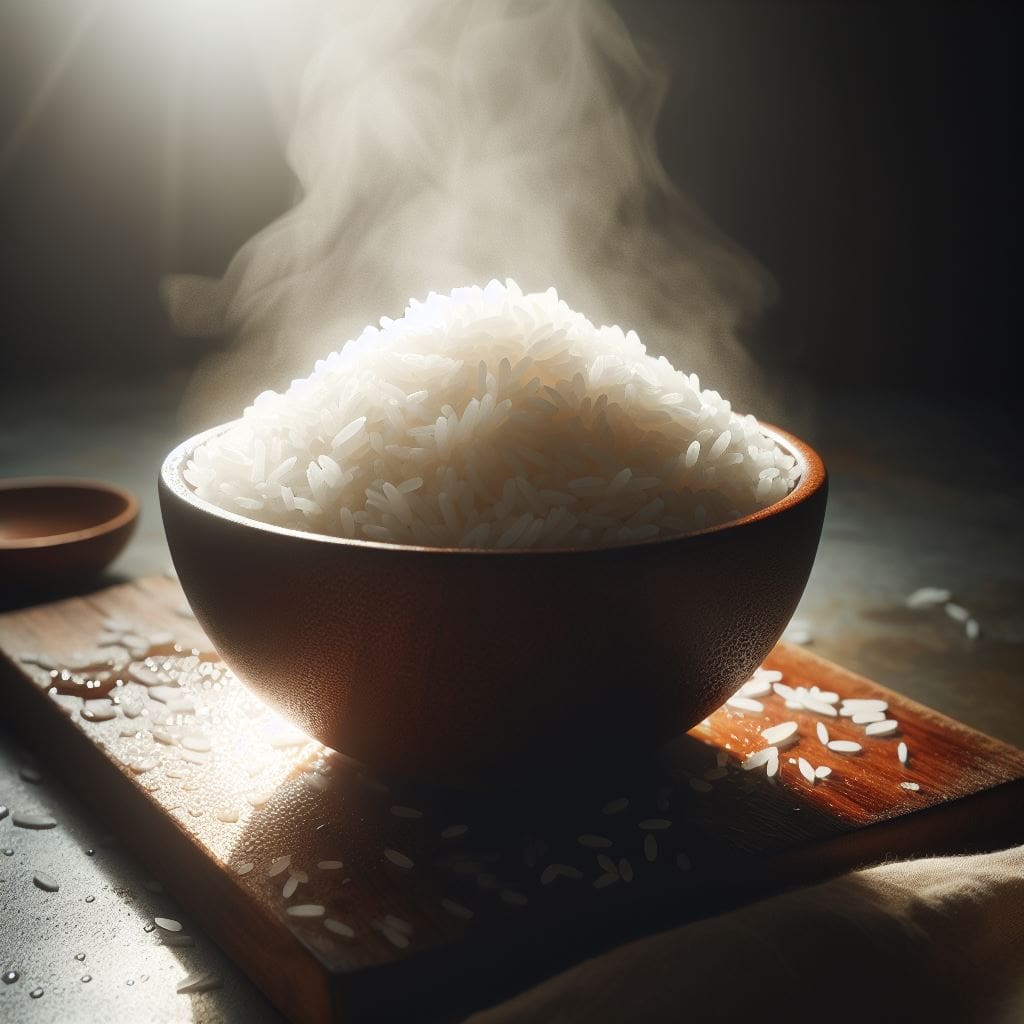
You can ensure that you meet your daily fiber requirements by incorporating these fiber-rich Nigerian staples into your diet. These foods are rich in fiber and can help to reduce inflammation and improve digestion. Additionally, they can also help to regulate blood sugar levels and promote a healthy weight.
Nigerian Vegetables High in Fiber
Vegetables are an essential part of any nutritious diet, and luckily, Nigeria is abundant in a wide variety of vegetables that are high in fiber. Let’s explore some of these fiber-rich Nigerian vegetables.
Okra

Okra, technically a fruit but used as a vegetable in cooking, is a popular ingredient in Nigerian cuisine. It is rich in water content and low in calories, making it a weight-loss-friendly option. Okra is often used to make different varieties of soups and can be cooked on its own or combined with other vegetables. It is highly nutritious and a great source of fiber.
Editan
Editan is a green leafy vegetable similar to bitter leaf and is commonly used by the Ibibios and Efiks to make various soups. It can be washed to the desired bitterness level and combined with other vegetables like bitter leaf or okra. Editan soups are nutrient-dense, high in fiber, and low in calories, making them a healthy addition to your diet.
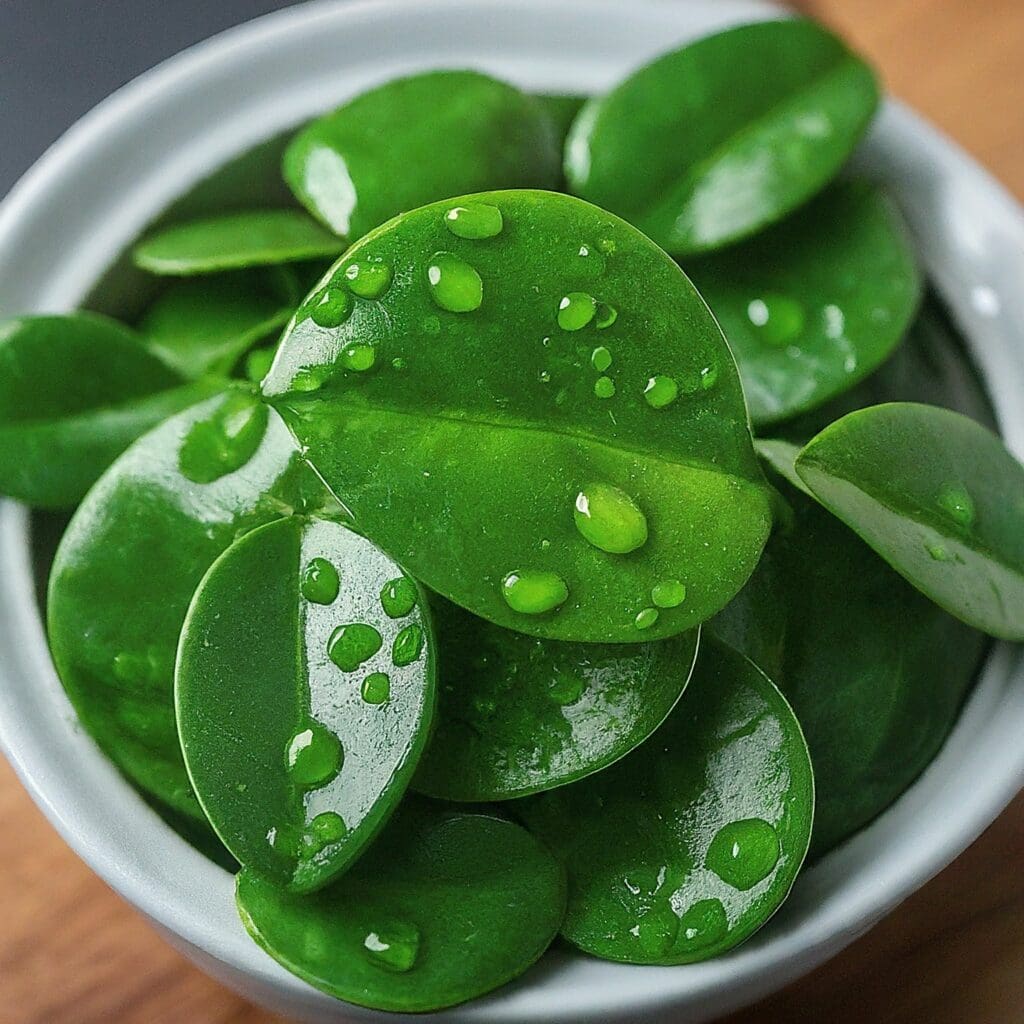
Fluted Pumpkin Leaves (Ugu Leaves)
Fluted pumpkin leaves, also known as ugu leaves, are a popular green leafy vegetable in Nigeria. They are packed with fiber, iron, and potassium, making them a nutritious choice for soups and smoothies. Fluted pumpkin leaves can be blended into soups or used as a side dish, adding both flavor and fiber to your meals.
Scent Leaves
Scent leaves, also known as efirin or nchuanwu, are aromatic herbs commonly used in Nigerian cuisine. They have a distinct fragrance and are high in fiber. Scent leaves can be added to soups, stews, or used as a garnish to enhance the flavor of your dishes while providing a boost of fiber.
Cabbage
Cabbage is a versatile vegetable that is often used in Nigerian salads, coleslaws, and stir-fries. It is low in calories and high in fiber, making it an excellent addition to a healthy diet. Cabbage can be enjoyed raw or cooked and provides a nutritious source of dietary fiber.
Incorporating these fiber-rich Nigerian vegetables into your meals is a great way to increase your fiber intake and add variety and nutrition to your diet.
Nigerian Fruits High in Fiber
Fruits are not only delicious but also a great source of fiber. Nigeria is blessed with a wide array of fruits that can contribute to your daily fiber requirements. Let’s explore some of the fiber-rich Nigerian fruits.
African Star Apple/Agbalumo
African star apple, also known as agbalumo in Yoruba, is a popular fruit in Nigeria. It can be eaten raw as a snack or used in various recipes. Agbalumo is not only tasty but also contains a good amount of dietary fiber, making it a healthy choice for a fiber-rich diet.
Pawpaw
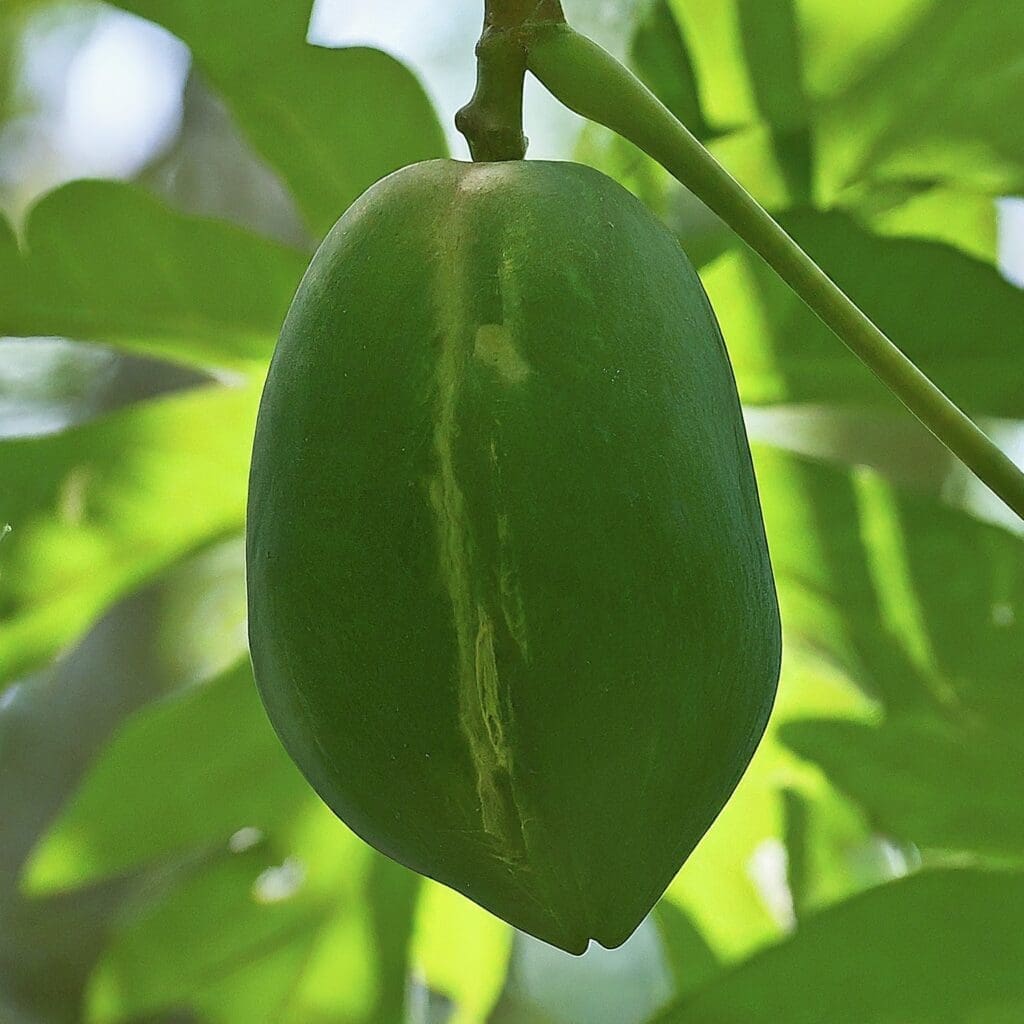
Pawpaw, also known as papaya, is a tropical fruit that is abundant in Nigeria. It is rich in fiber, vitamins, and minerals. Pawpaw can be enjoyed on its own or added to smoothies, salads, or desserts, providing both flavor and fiber to your meals.
Guava
Guava is a nutrient-dense fruit that is high in fiber, vitamin C, and other essential nutrients. It has a unique flavor and can be eaten on its own or used in various recipes. Guava is often referred to as a superfruit due to its high fiber content, which promotes a healthy digestive system.
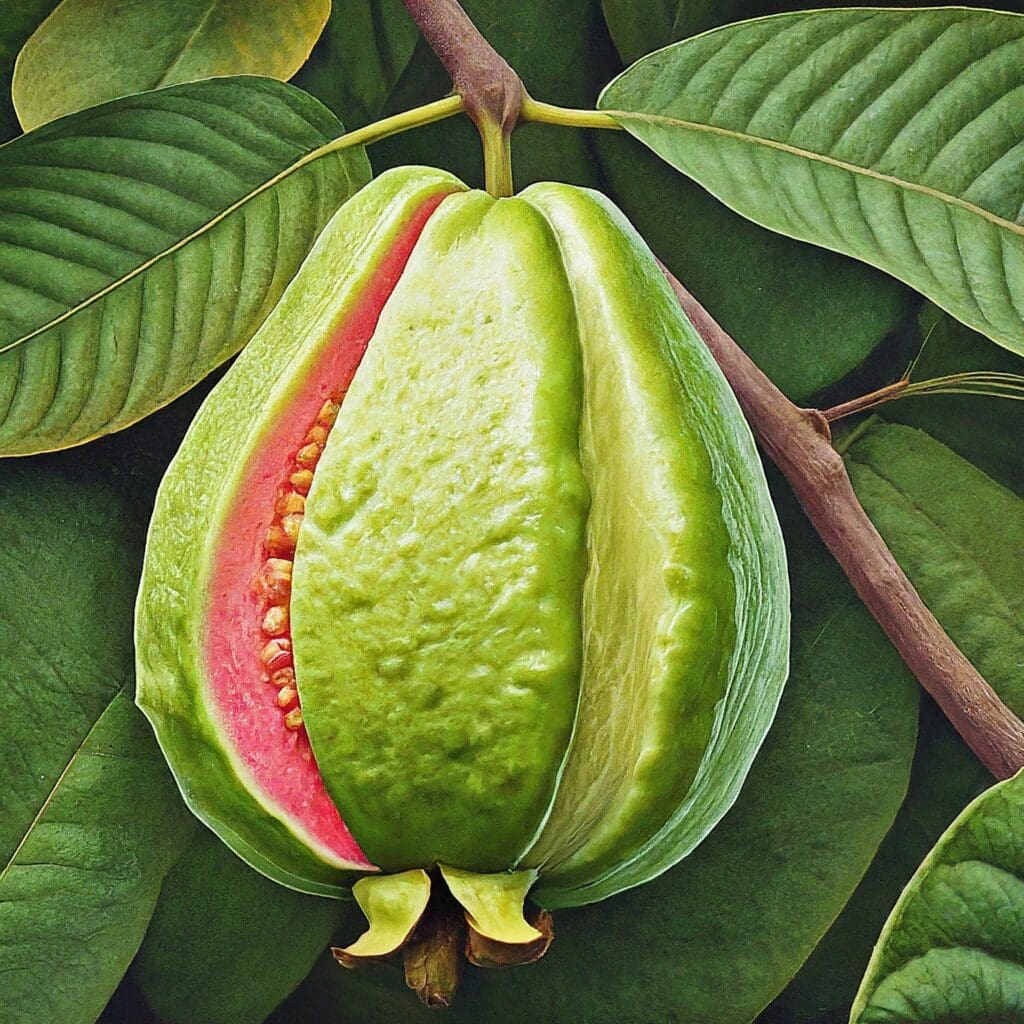
Apple
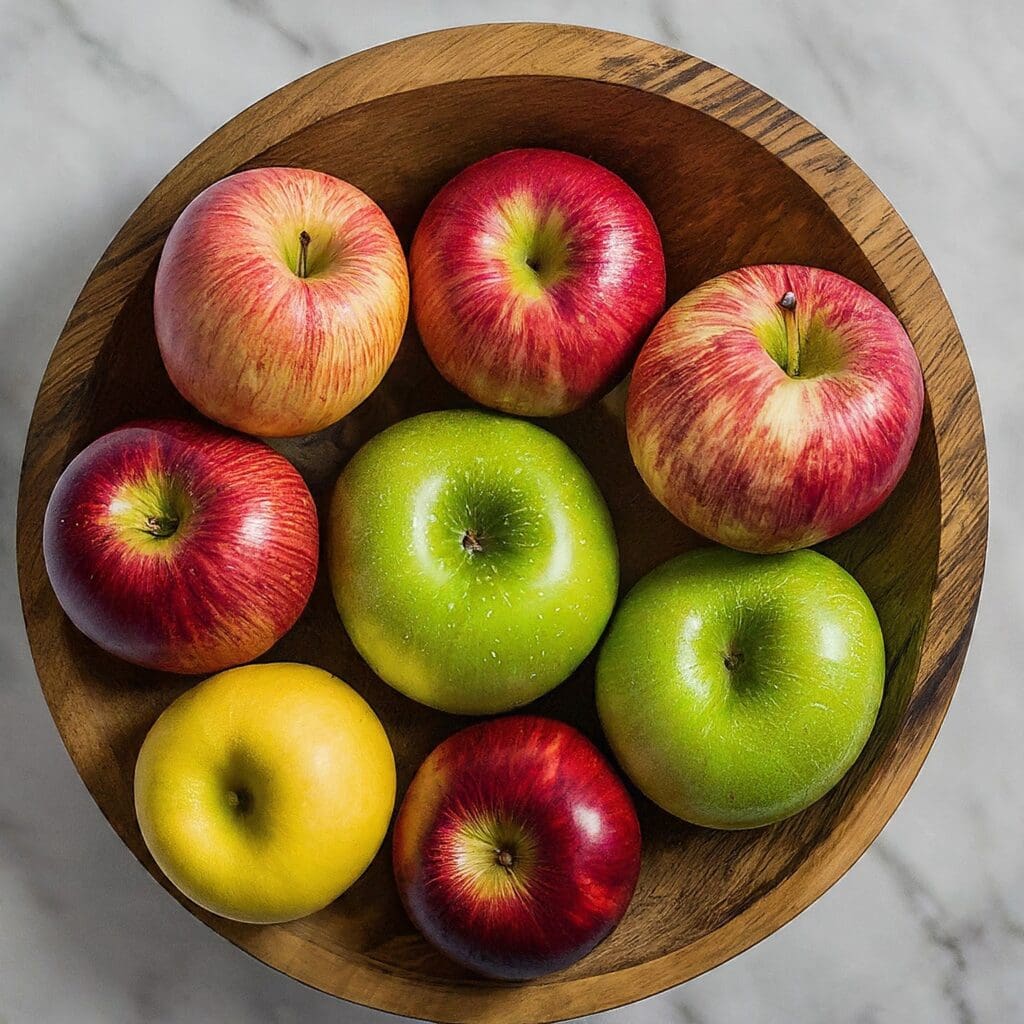
Apples are widely available in Nigeria and are not only delicious but also a good source of dietary fiber. They can be enjoyed as a snack, added to salads, or used in cooking and baking. Apples come in a variety of flavors and textures, providing a refreshing and fiber-rich addition to your diet.
Pineapple
Pineapple is a tropical fruit that is loved for its sweet and tangy flavor. It is packed with fiber, vitamins, and enzymes that aid digestion. Pineapple can be eaten on its own, added to fruit salads, or used as a topping for desserts or savory dishes, providing both taste and fiber to your meals.
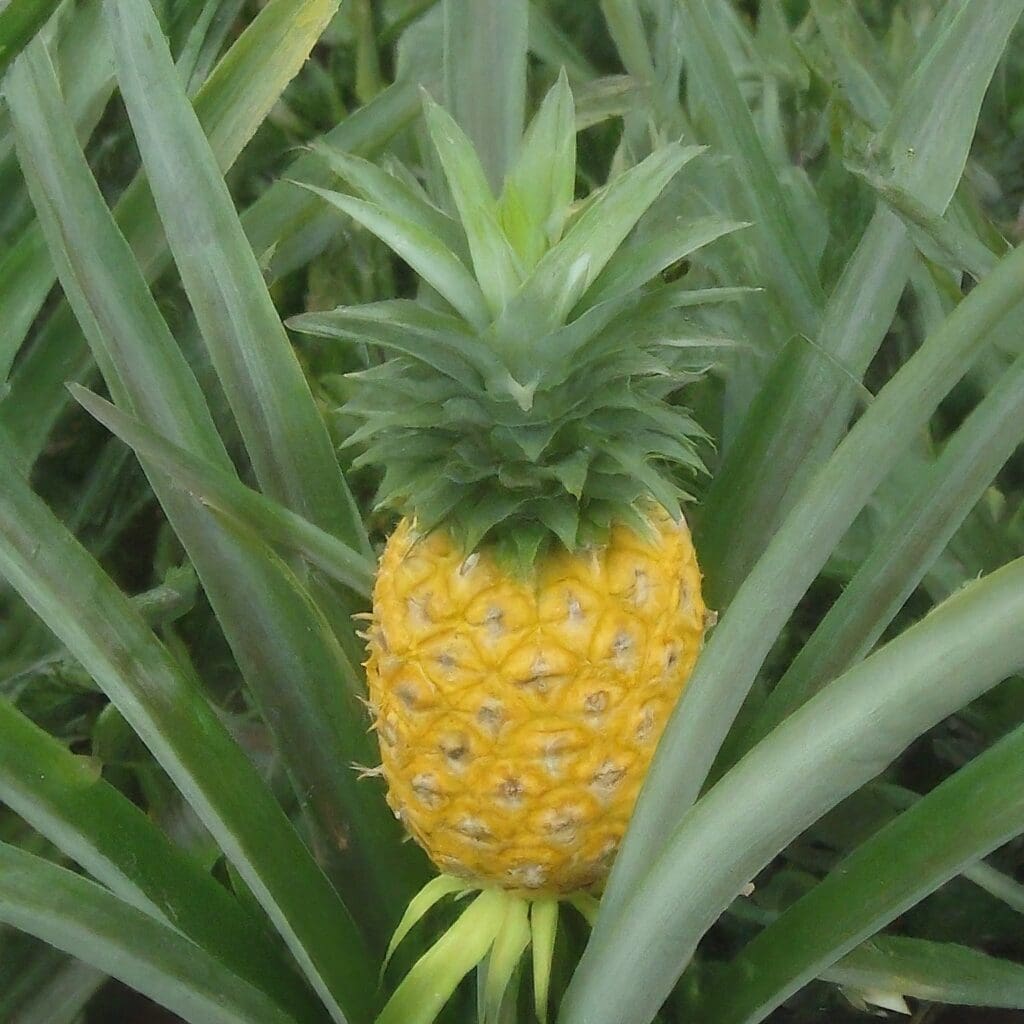
Incorporating these fiber-rich Nigerian fruits into your diet is a delicious way to increase your fiber intake and enjoy the many health benefits they offer.
Other Fiber-Rich Nigerian Foods
In addition to the staple foods, vegetables, and fruits, Nigeria has a variety of other foods that are high in fiber. Let’s explore some of these fiber-rich Nigerian foods and how they can contribute to a nutritious diet.
Tigernut
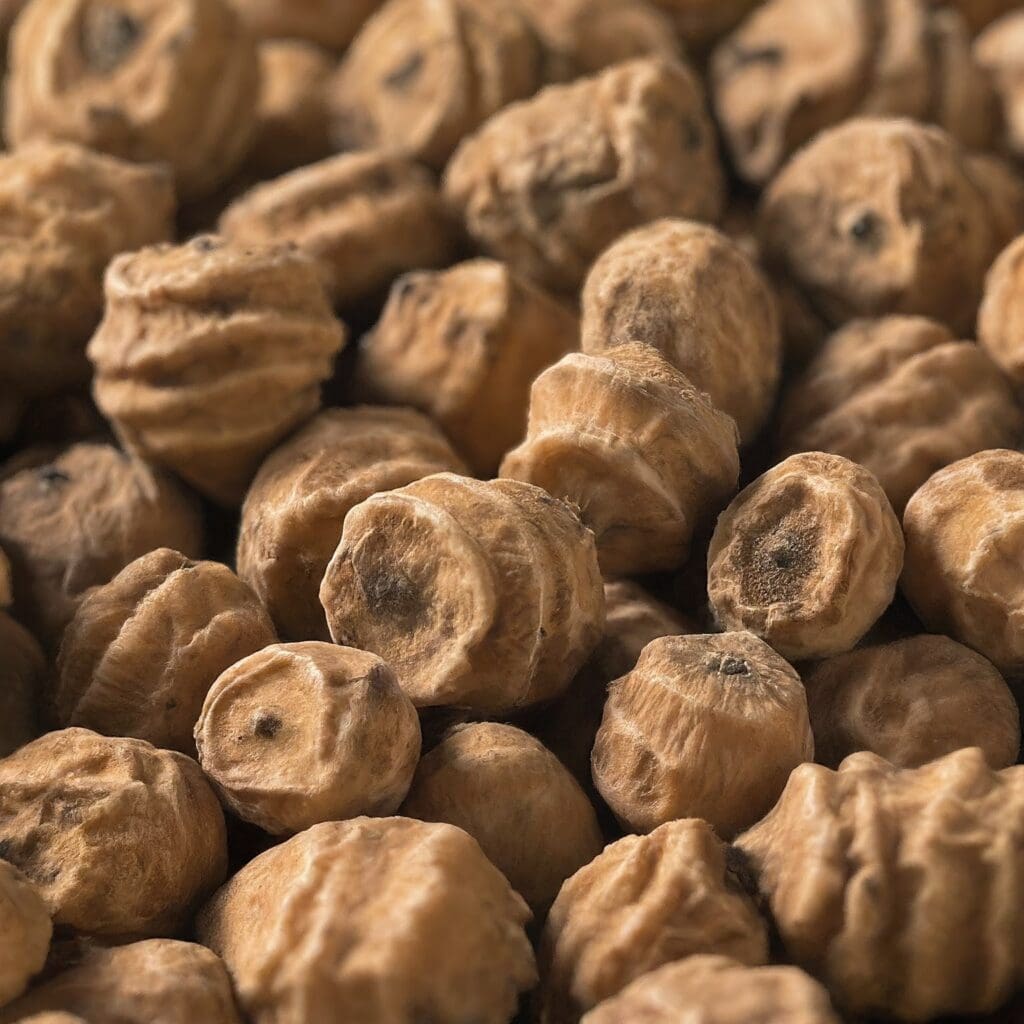
Tigernut, also known as aya or ofio, is a small tuber that is packed with fiber and other nutrients. It can be eaten raw, roasted, or used to make tigernut milk. Tigernuts are a popular snack in Nigeria and provide a healthy dose of dietary fiber, making them a nutritious and fiber-rich option.
Chickpeas
Chickpeas, also known as garbanzo beans, are a versatile legume that is high in fiber and protein. They can be used in various Nigerian dishes like soups, stews, and salads, providing both nutrition and fiber to your meals. Chickpeas are also a great option for vegetarians and vegans looking to incorporate more fiber into their diet.
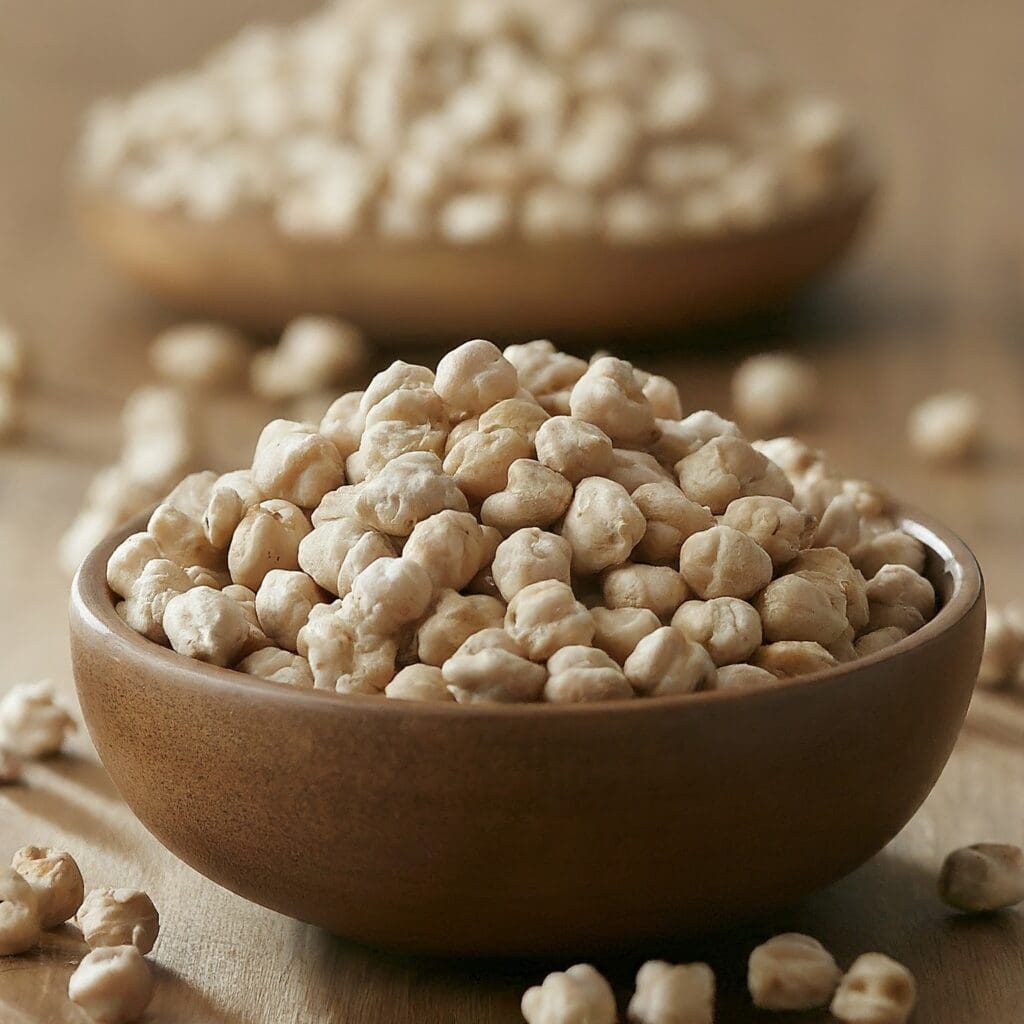
Almonds
Almonds are a nutritious and fiber-rich nut that can be enjoyed as a snack or used in cooking and baking. They are high in healthy fats, protein, and fiber, making them a satisfying and nutritious addition to your diet. Almonds can be eaten on their own, added to salads or smoothies, or used as a topping for various dishes.
Dark Chocolate
Yes, you read it right! Dark chocolate, when consumed in moderation, can be a part of a nutritious diet. It is not only a sweet indulgence but also a good source of fiber and antioxidants. Dark chocolate with a high cocoa content provides the most health benefits, so opt for varieties with 70% cocoa or higher.
Avocado
Avocado is a creamy and delicious fruit that is packed with fiber, healthy fats, and various essential nutrients. It can be enjoyed on its own, added to salads, or used as a spread or topping for toast and sandwiches. Avocado is a great source of dietary fiber and can contribute to a fiber-rich diet.
Coconut

Coconut is a versatile fruit that is used in various forms in Nigerian cuisine. It can be eaten raw, used to make coconut oil or milk, or added to dishes and desserts. Coconut is high in fiber and provides a unique taste and texture to your meals. It is a nutritious and fiber-rich addition to a well-balanced diet.
Papaya
Papaya, also known as pawpaw, is a tropical fruit that is abundant in Nigeria. It is not only delicious but also a good source of dietary fiber. Papaya can be enjoyed on its own, added to fruit salads, or used in smoothies or desserts. It provides both taste and fiber to your meals.
Watermelon
Watermelon is a refreshing and hydrating fruit that is perfect for hot Nigerian weather. It is also a good source of dietary fiber. Watermelon can be enjoyed on its own, added to fruit salads, or used in smoothies and juices. It is a delicious and fiber-rich option for a nutritious diet.
By incorporating these other fiber-rich Nigerian foods into your meals, you can add variety and nutrition to your diet while ensuring you meet your daily fiber requirements.
Tips for Incorporating Fiber-Rich Nigerian Foods into Your Diet
Now that you are familiar with the fiber-rich Nigerian foods available, here are some tips to help you incorporate them into your diet:
- Start by gradually increasing your fiber intake to avoid digestive discomfort.
- Choose whole grain versions of staple foods like rice, bread, and pasta.
- Include a variety of fruits and vegetables in your meals and snacks.
- Experiment with different recipes and cooking methods to make your meals more exciting.
- Incorporate legumes like beans, chickpeas, and lentils into soups, stews, and salads.
- Snack on fiber-rich nuts and seeds like almonds, pumpkin seeds, and chia seeds.
- Opt for fresh, unprocessed foods whenever possible to maximize the fiber content.
- Stay hydrated by drinking plenty of water, as fiber works best when combined with fluids.
By following these tips and making conscious choices to include fiber-rich Nigerian foods in your daily meals, you can enjoy a nutritious and fiber-rich diet that supports your overall health and well-being.
Conclusion
A nutritious diet is essential for maintaining good health and overall well-being. Including fiber-rich foods in your daily meals is a crucial part of a healthy eating plan.
In Nigeria, there is a wide variety of fiber-rich foods available, by incorporating these fiber-rich Nigerian foods into your diet, you can enjoy the many health benefits that fiber provides, including improved digestion, weight management, and reduced risk of chronic diseases.
Remember to start by gradually increasing your fiber intake and making small changes to your meals and snacks. With time, you will develop a nutritious and fiber-rich eating plan that suits your taste and supports your overall health



